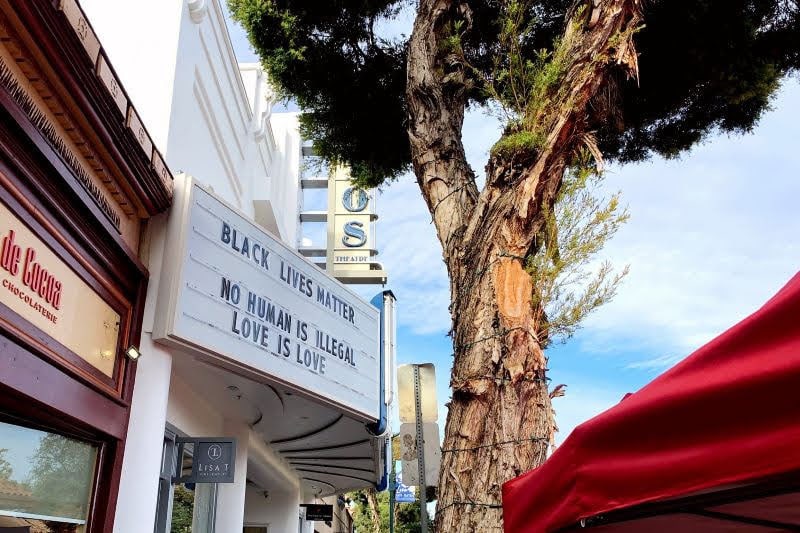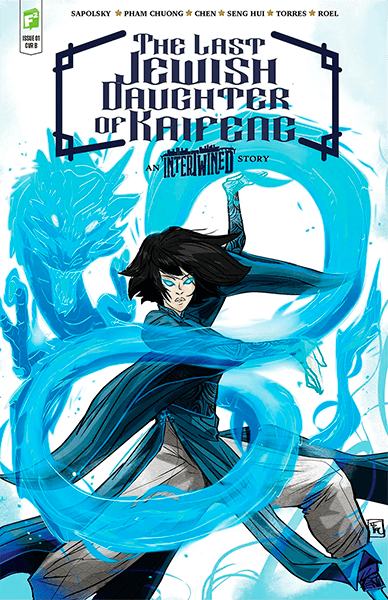While there are a handful of Jewish clergy with Asian heritage in the United States, there are even fewer Asian lay leaders. Since 2019, Andy Cheng has served as president of Congregation Beth Am in Los Altos Hills, CA. It is the synagogue where he converted in 2008 and celebrated his Bar Mitzvah, at age 40, in 2012.
During his tenure as president, Cheng, 49, has overseen the hiring of a new senior rabbi—Rabbi Jeremy Morrison joined the congregation in July 2020—and helped his community pivot to online programming in response to the pandemic. Cheng, who is also a member of Be’chol Lashon’s advisory board, recently spoke with us about his background, his priorities as president, as well as the recent wave of anti-Asian bigotry and violence. This interview has been edited and condensed.
Can you tell us a little bit about yourself?
Culturally, I’m Chinese American. I grew up Roman Catholic. When we moved to the U.S., my family found a church and I grew up with a Catholic education. Fast forward, when I went to college I drifted away from Catholicism, and then post-college, I met my wife, Abi, who grew up Jewish and introduced me to Judaism. I instantly fell in love with my wife and with Judaism.
Twenty years later, here I am, a dad of an 18 year old and 11 year old. We’re Jewish and Chinese. I got reconnected with my Chinese roots and language when our first child was born. We speak Chinese at home to both of the kids, and so it’s just very interesting to have all these different cultures going on within our family.
How did you become involved at Beth Am? Why did you decide to have a Bar Mitzvah at age 40?
Abi grew up in that congregation, and I visited Beth Am for the first time for Friday night services over 20 years ago. I was really spiritually overwhelmed. And so I started taking some classes, and I think that was really helpful in terms of deciding to convert.
You don’t need to have a Bar Mitzvah once you’ve converted, but not having grown up as a Jew, I continued going through the journey of trying to get to a place where I could feel authentically Jewish. For me, learning Hebrew and publicly chanting from the Torah, those are all things that helped me demonstrate my Jewish knowledge. Even wearing the physical symbols [of Judaism], like a tallit and kippah, all those things helped me feel more Jewish. My entire family was there, both on my side of the family as well as Abi’s side of her family. The experience was just amazing.

Cheng, center, at a Be’chol Lashon advisory board retreat in 2017. (Be’chol Lashon)
Did you aspire to be the president of Congregation Beth Am?
No, I did not aspire to be president because for a long time, I struggled to really feel like I was Jewish. But over the years, I realized it’s this active process of experiencing Judaism that has helped me feel Jewish. I was invited to participate in a leadership program at Beth Am, and then from there I participated in a few committees. About six years ago I joined the board and started learning even more about running our congregation. And then finally, I had an opportunity two years ago to become the president.
We’re a large congregation; we have 1,500 households and over 3,000 members. Being part of a large congregation is both a blessing and a challenge because of the variety of viewpoints, demographics, and beliefs. There’s a lot of great things about the congregation; collaborative partnership between professional and lay leaders, egalitarian culture, a community that’s compassionate and caring. To be the president of this congregation is really quite special. At the same time, we have an opportunity to bring even more equity and inclusion to the Jewish community. When I talked to some of the congregants who are our congregants of color at Beth Am, it was important to learn that the darker their skin, the more disturbing stories they’ve had. That was very eye-opening for me.
What have been your priorities as a board during your term?
Before the pandemic started, we were primarily focused on the senior rabbi transition. We also had many other priorities, like our capital campaign, re-envisioning our youth education programs, engaging the younger generation, and forming a security working group. When Covid hit, a lot of things just went out the window and we just had to adapt, innovate, and rethink how we were going to do things as a congregation. I was really impressed by our program team, who pivoted in a couple of days and created a virtual Beth Am for people to engage online. We also established a crisis response team, and we have a recovery team looking at how we can bring people back safely.
Why do you think it’s important for there to be more Asian Jews like yourself in lay leadership roles?
I don’t see it as just being an Asian thing, truthfully. I think that the Jewish community is in a place right now where any diversity we can bring is welcome. Some might see my position as tokenism. But when I became the first non-white president of Beth Am, I saw it as an opportunity to show that Jews are multicultural and global, and all those things that we talk about at Be’chol Lashon.
What are your thoughts about the racism and violence directed against Asian Americans by those who blame China (and anyone who looks Chinese) for the pandemic?
I’ve been thinking a lot about that. What I’ve learned is that over the past year, there’s just been a new level of awareness around racial equity. I feel like that’s a really good thing. Of course, it’s really unfortunate seeing an uptick around racism and violence directed against Asian Americans, and particularly around the pandemic. But speaking of the pandemic, you also read about how Asians are in a much better place than most other racial groups. For instance, if you look at the most recent statistics, about 10% more Asians have been vaccinated than African Americans, as an example. I bring this up because in some ways, Asians have been far better off than other racial and ethnic groups in the United States.
At the same time, one of the things that I’ve been aware of is not trying to get into a debate over which group is suffering more. It’s about, how do you support vulnerable groups, and if you end up doing that, everyone benefits.
What are your plans for Passover this year?
We’re going to do pretty much the same thing this year as we did last year. The silver lining in having a virtual Zeder (Zoom Seder) is that it enabled our household to have the largest and most diverse gathering ever. There were five participants from my side of the family, with individuals logging in from New York, Virginia, and Washington.







